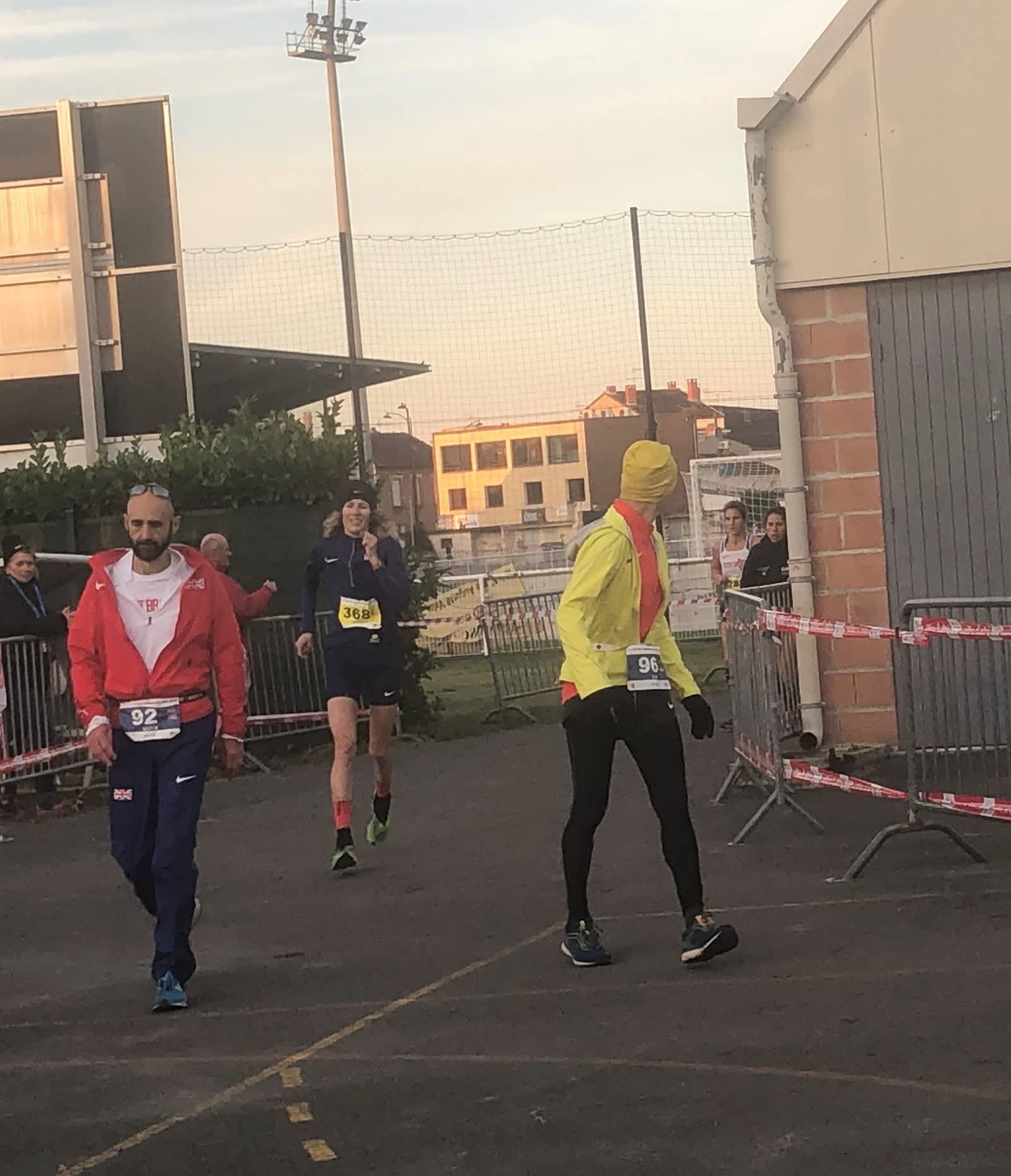
I'm derailed by hours of illness – as Camille Herron comes past on the way to a new world record
Some quick takeaways for the short on time:
It hurts when things don’t work out, whether we get it wrong or factors beyond our control take over. Maybe we started a race too fast. Maybe our heart just wasn’t in it. Perhaps we overreached our fitness level. Or maybe we fell short of our goal because it was too hot, too busy or because the field was too strong. And whether the reasons are within our control or not, falling short often feels like failure.
It’s great when things go well, but when things go wrong we learn a lot more. Neuroscience tells us that our brains literally grow when we fail. And if we never fail, we limit our opportunities for growth. It’s not that we should intentionally seek out failure, but we might be less afraid of risking it if we remember that it can have an upside.
If things don’t work out it’s easy to dream of times when we stuck safely to what we knew. But by risking something different or stretching a goal, we open the door to new experiences, new highs, and new learning. In the immediate aftermath of a failure we should remind ourselves that what happened was only possible because of our courage to push towards the edge, without which we would not have been there at all.
It’s important that we understand what went wrong, and more important not to dwell on it – the future is where the life is. Learn the lessons, make the changes, know that the disappointment and the pain will turn into hunger and determination. Yes, it’s hard when things don’t go to plan, but it is also an opportunity. Whether or not it is a failure will depend on what we do next.
The Full Story (4 minute read)
It always hurts when things don’t work out, whether we get it wrong or factors beyond our control take over. Maybe we started a race too fast. Maybe our heart just wasn’t in it. Perhaps we overreached our fitness level. Or maybe we fell short of our goal because it was too hot, too busy or because the field was too strong. And whether the reasons are within our control or not, falling short often feels like failure.
My first ever marathon was in London. I had a bad day and ended up walking a significant amount of the second half of the race. My friend Angeli, who was supporting me, still makes fun of me for being beaten by ‘a tomato’ – a charity runner whose heart outfit looked like a tomato from where she was standing. Before I made my debut for Great Britain, she gave me a bottle of tomato sauce as encouragement to ‘ketch-up’ with the runners in front. There’s nothing like friends to keep you humble!
I still remember the journey home after that first London Marathon. I felt no joy or pride – just disappointment and embarrassment. My embarrassment was certainly misplaced – our first marathons are always learning experiences – but things could have gone a lot better. I’d been overambitious and had gone out too fast. I’d also been ill the week before the race and should have abandoned any targets and just aimed to get round.
For the next six months I trained for my next marathon, desperate to expunge the stain of that race. Then I fell ill again and had to wait a further six months before having another go – in Rotterdam in the spring.
I’d spent a year waiting for my chance; a year in which my training base improved. I’d also read and learned voraciously and gained an insight into what I’d done wrong and what I might do differently. My first marathon had been a crash course in how not to run; I had not adapted to circumstances beyond my control, I’d gone out too fast, I’d worried about how fast others were running instead of focusing on my own race and I’d failed to adapt when it became clear that things weren’t going my way. I had also been exposed to the full horror of the runner’s ‘death march’, and the sickening moment you start walking and can feel the race begin to leave you behind.
On the upside, I knew from the experience that I could still finish even when things were bad. And I was determined not to experience the death march in my next race – I would still push myself close to the edge, but the fear of it informed everything that I did.
The truth is that it’s great when things go well, but when things go wrong we learn a lot more. Neuroscience tells us that our brains literally grow when we fail. And if we never fail, we limit our opportunities for growth. I’m not suggesting that we should intentionally seek out failure, but we might be less afraid of risking it if we remember that it can have an upside.
I felt that I had pretty much worked out how to run a marathon when I turned to the ultramarathon. My first ultra was the 56-mile Comrades Marathon in South Africa. There were no tomatoes to put me in my place in that race, but I still walked a good portion of the second half. The death march in that race was even worse than my marathon debut (not least because the second half is longer than a marathon), but I learned from it. I waited a year, desperate for another go, and then nailed my second attempt, gaining the silver medal I’d dreamed about for finishing in under seven and a half hours, with just 25 seconds to spare. Although I’ve run a lot quicker since, it remains one of the greatest moments of my life.
If I’d stuck to running marathons I would have avoided that Comrades death march, but by risking something different I opened the door to new experiences, new highs, and new learning. And what I learned helped me, not just at Comrades, but in other races too.
I’ve only experienced the death march once since then, but unfortunately it was at the 24-Hour World Championships where I spent the last eight hours of the race vomiting and walking and clocked only 130 miles – at least 30 miles short of what I’d hoped for. The disappointment was hard to take, but it helped that I’d been there before and had come back strongly each time.
A couple of weeks after the race, I had a call with Robbie Britton, manager of the British team, and he quoted a Buddhist proverb: ‘The obstacle is the path.’ My longer races had all been affected by severe nausea or vomiting but I’d somehow got away with it until those World Championships. Now I would have to face the problem and find a solution. I had a year before the European Championships to find an answer – on the laboratory treadmill, in conversation with more experienced runners and by changing the way I eat and drink during races. The things I’ve been forced to discover could take me to the next level of performance – it’s possible that failing to achieve what I wanted in the World Championships will be the best thing that could have happened to my running. Only time will tell, but I know from those earlier experiences that coming back smarter can deliver results.
I’m no longer embarrassed by my first London Marathon – I’ve long since learned that in running, embarrassment is nothing but a failure of humility. I would obviously have preferred to beat that tomato, but the things I learned that day have undoubtedly helped my running.
It can take a while to appreciate our failures, and in their immediate aftermath it can be hard to see the potential they offer for growth. It’s easy to dream of times when we stuck to what we knew or kept to more attainable goals. In the immediate aftermath of a failure we should remind ourselves that what happened was only possible because of our courage to push towards the edge, without which we would not have been there at all.
When things don’t work out, it’s crucial that we understand what went wrong without dwelling on it – the future is where life is. It is hard when things don’t go to plan, but it is also an opportunity. Whether or not it is a failure will depend on what you do next.





